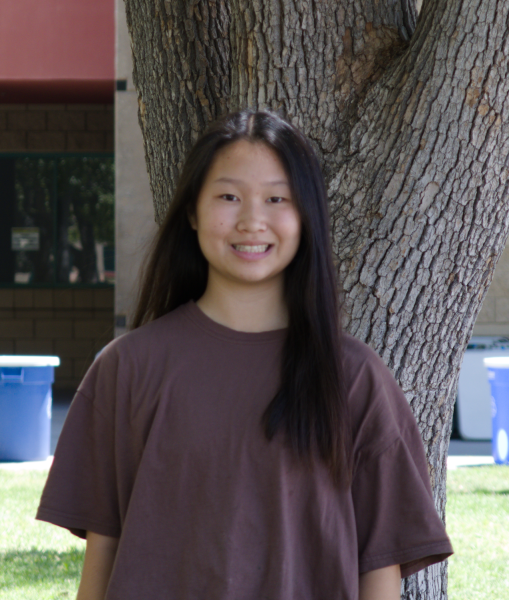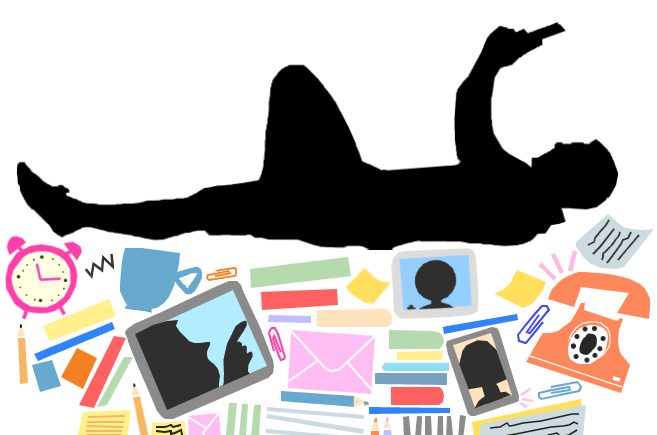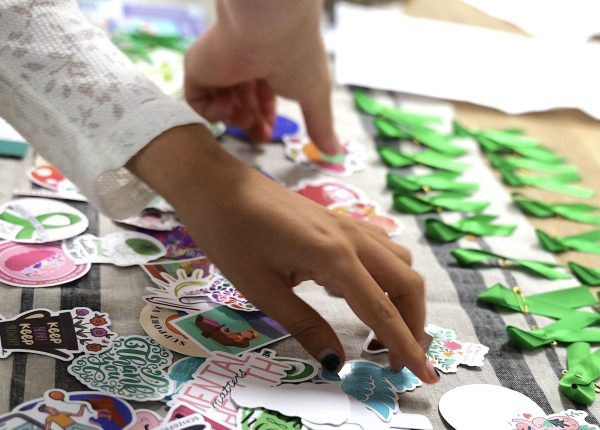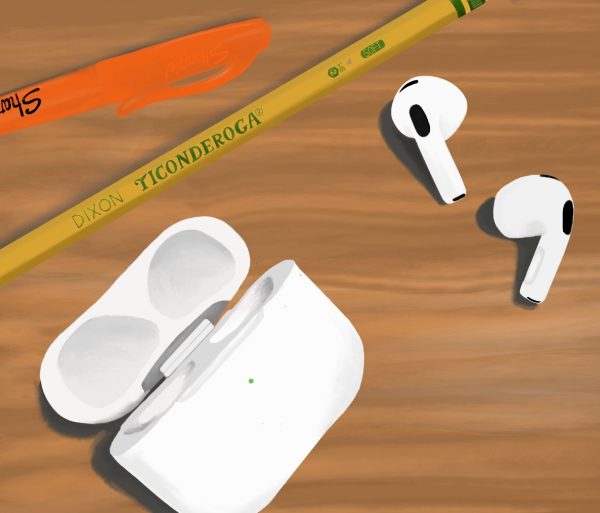Cure Your Procrastination
News Editor Ellen Kim interviews experts Dr. Piers Steel and Dr. Tim Pychyl about how students can defeat procrastination.
As a result of technological distractions and a lack of motivation, many students struggle to prioritize tasks and get them done. Procrastination researchers, Dr. Piers Steel and Dr. Tim Pychyl, share their takes on what students can do to complete work more efficiently.
It’s Saturday and I have 40 math problems to complete by Tuesday. I say to myself, “I’ll start it on Sunday, and I’ll still have some time to finish the assignment.” But Sunday becomes Monday and Monday becomes Tuesday morning and then I realize: I have one hour to turn in my work.
With the unavoidable distractions at home as a result of distance learning, social media and phone notifications tactfully steal precious work hours without notice, and the excuse, “I work better under pressure” eventually becomes the standard approach to all assignments.
Poor time management results in stress and less sleep, which can lead to more severe cases of poor mental health and anxiety.
In an exclusive interview, Wildcat News Editor Ellen Kim interviews Dr. Piers Steel, author of The Procrastination Equation, and Dr. Tim Pychyl, Associate Professor of Psychology at Carleton University. Kim asks questions about why students procrastinate, how developing healthy habits can avoid lifelong procrastination, and how a solidified plan and mindset can overcome it.
The Wildcat: What got you interested in studying procrastination?
Dr. Steel: I was a terrible procrastinator. And it caused a lot of personal suffering, a lot of lost accomplishment, and I suffered for it, so that’s my interest. I got into it so I could be a better person.
The Wildcat: Do you believe that there is such a thing as chronic procrastination, or is it just a bad habit? If so, what is it and what’s the best way to prevent it?
Dr. Steel: Of course there’s chronic procrastination! Procrastination is only having the motivation just before a deadline. Now, somebody else decided when you were going to get that motivation, [which] is inconvenient. [We have to] try to give people control and autonomy back in their lives so they can decide when they do things instead of letting the environment decide when they’re going to feel motivated.
Dr. Pychyl: Unfortunately, school does a good job of developing chronic procrastination. We keep getting assignments that we don’t want to do. They bore us, so we resent them or they cause anxiety. And we learned very early to put it off to the last minute. School assignments are such that we can often manage to pull it off at the last minute. For many students, it becomes a habit, [and] we think that’s the way to work. To break that habit or not to develop that habit, we need to develop more emotional intelligence. The next time you face a task where you’re saying, “I don’t want to” or “I don’t feel like it”, don’t focus on your emotions. Ask yourself the simple question of: What’s the next action? And typically what happens then is that focusing on the action takes our mind off our emotions. And in doing it, we find motivation. Getting things done and finding progress on a goal feeds our wellbeing. Procrastination drags our well-being down while progress on a goal actually fuels our well-being.
The Wildcat: How does having the mindset of working under time pressure compare with working on an assignment without this constraint?
Dr. Steel: You will work harder and better when you have motivation. People actually work up 12 times their normal pace just before the deadline. So an hour before a deadline is worth 12 much earlier. Potentially for some people, you think, I’ll just give up. You’re accepting helplessness, accepting [that] you cannot control yourself. One technique is simply to create artificial deadlines. Same thing with goal setting. Make those goals concrete, specific, short-term, immediate, and usually an approach to something you’re going to do. Your phone is your enemy [and] it’s something that is fun and entertaining, but it always wants your attention. So a big challenge is how to reduce that to a reasonable amount of time. Put [distractions] at a distance, and harder to get to. You can shape how much you enjoy it or not through a variety of different methods. “When are you studying?” One of the easiest ways of getting a full letter grade increase is simply getting more sleep. You have more energy, are more attentive, and everything comes easier.
Dr. Pychyl: Research shows that under time pressure, we make more errors. It is an excuse that we’ve heard in our research when people are procrastinating. Interestingly, what we learned is that [the assignment] doesn’t seem as difficult then or as stressful. They’re saying things like “this isn’t as bad as I thought” and “I wish I’d started earlier.” Now, why do we need that excuse? When we procrastinate, we are acting against our intention, so we have a cognitive dissonance when we hold to beliefs that are opposite to our intention. To relieve that dissonance, we make excuses for our behavior or saying “I work better under pressure.” People make more mistakes under pressure and of course, with written assignments. If you do it at the last minute, there’s no chance for revision. There’s no such thing ever as good writing that’s not revised plain and simple. Good writing is always writing that is revised.
The Wildcat: What is the cause of procrastination, and what is a common misconception that people have regarding this topic?
Dr. Pychyl: Many people think procrastination is a time management problem and it is not. Time management is necessary, but it’s not sufficient. You could have a very detailed schedule, but I think I don’t want to. I don’t feel like it. I’ll feel more like it later. I feel more like a tomorrow. It’s an emotion regulation problem. Procrastination is an emotion focused coping strategy when fac[ing] a task [that] causes me negative emotions [such as] boredom, frustration, resentment, or fear. We try to make ourselves feel better by avoiding our tasks. I’d like everyone to focus on the fact that it’s an emotion regulation issue and that the neuroscience around procrastination has shown us that people who report more frequent procrastination actually have larger amygdala volume- [where] it says fight or run away. With procrastination, what’s happening is the amygdala is overriding the rest of the brain saying run away, taking control and hijacking the brain. What can change this, is a practice of mindfulness meditation. Even one program of mindfulness meditation has been shown to shrink the amygdala and change the connections so you can learn to take control of your life.
The Wildcat: With high school students and their busy schedules, do you have any tips for time management?
Dr. Pychyl: Use an electronic calendar on your phone or your handheld device and make it sync with your computer. Color code, all of your courses separately, so that at a glance you can tell what courses you’re working on when assignments are due. And most importantly, don’t just put in the due dates, but put in when you’re going to work on those assignments and start working on those assignments and putting that schedule in. My last tip around time management is this: schedule absolutely everything. When you get up, when you eat, when you shower, when you exercise, everything that you do, because it’s really revealing of how much time you actually have.
The Wildcat: What would you advise to those who feel guilt as a result of delaying a task?
Dr. Steel: A lot of people want to be forgiven for their procrastination. And I would suggest forgiving them, and let them know it’s natural, but it’s not functional. So it’s normal for us to struggle with it. But it would be abnormal not to have the strap, so it would be abnormal not for us to want to reduce it. If you don’t think you’re going to be worse off for this delay, do not procrastinate.
Your donation supports the student journalists at Brea Olinda High School! The contribution will help us purchase equipment, upgrade technology, and cover our annual website hosting costs.

Ellen Kim, senior, has been a member of the newspaper staff since her freshman year and is excited to lead the staff as Editor-in-Chief. Alongside her...
Charlize Chiang, senior, is a Photo Manager and Illustrator for the Wildcat and returns for her third year on staff. She competes for varsity tennis, and...







